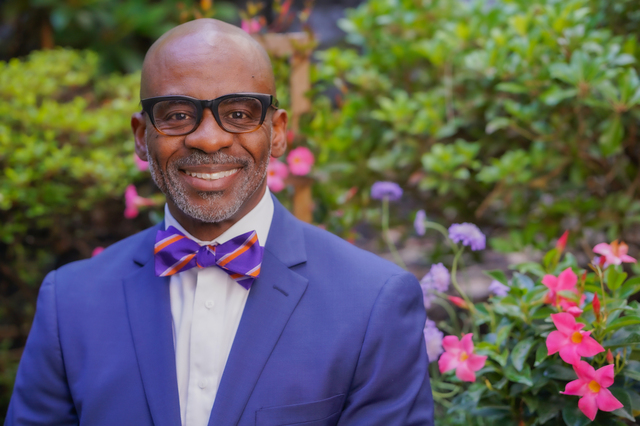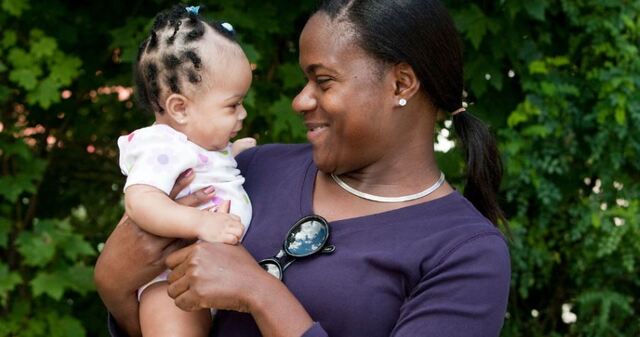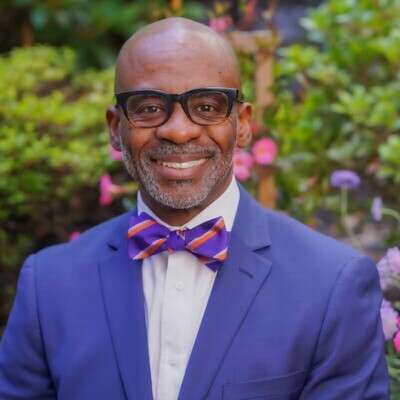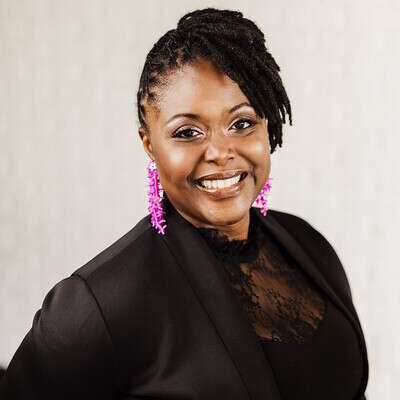Recognized as a 2024 Innovator in Healthcare by the Boston Business Journal, Dr. Charles Anderson, President & CEO of The Dimock Center, shares his expertise and vision for transforming healthcare delivery amidst evolving challenges.
Boyden's Leadership Series presents discussions with prominent business and thought leaders representing diverse organizations worldwide. The series delves into timely and pertinent topics, providing executives, governance leaders, and media professionals with invaluable insights into the prevailing trends and challenges across industry, business, and talent in today's global marketplace.
This issue features Dr. Charles Anderson, President and CEO of The Dimock Center, in conversation with Boyden's Leslie Smith. From addressing workforce dynamics to tackling racial health inequities, Dr. Anderson's leadership embodies a commitment to "positive problem-solving" and community-centered care.

Dr. Charles Anderson, President and CEO, The Dimock Center
Boyden: Congratulations on being recognized by the Boston Business Journal as a 2024 Innovator in Healthcare. It has been an honor to work alongside you in the Chief Development Officer search these past few months. Healthcare has changed so much over the years. Can you talk about being an “innovator in healthcare” as the CEO of The Dimock Center?
Dr. Anderson: When we talk about innovation, it is important to understand the context. Health service delivery requires a careful alignment of people, processes, and infrastructure. A disruption in any one of these components destabilizes the entire system. A Health Affairs study in April 2022 revealed that the nursing workforce fell by approximately 100,000 over a one-year period which was the largest drop ever measured in four decades. A poll conducted by McKinsey and Company found that almost a third of current nurses in Sept 2022 were planning to leave their direct patient care positions in the next 12 months. Furthermore, the American Medical Association estimates that roughly 83 million people in the US live in areas without sufficient access to a primary care physician.
These workforce challenges are having a profound impact on our entire system of care, especially for the underinsured and most vulnerable members of our communities that are dependent on our safety net institutions, such as our 1,400 Federally Qualified Health Centers, operating over 14,000 sites, and serving over 31 million people in the US. The National Association of Community Health Centers recent workforce survey found that 68% of health centers reported losing 5-25% of their workforce in the last 6-months with 15% reporting losing 25-50%.
In my opinion, workforce will be the single most critical contextual driver of innovation in healthcare over the next decade. That said, I also think it is important that we reframe what we are calling innovation as more than simply the creation of something new.
I believe our focus needs to be on “positive problem-solving”. Starting with a clear shared understanding as a leadership team that for every problem there is a solution and that as Dr. Oneeka Williams communicated in her Psychology Today article in 2020, with faith, a willingness to work together, and a combined sense of determination, we can find solutions. (“The 5 Habits of Positivity - Coping effectively in times of social crisis and personal loss”).
My role as a leader is to create a culture of “positive problem-solving” where my team does not skip the critical steps involved in fully understanding the problem and then strongly believes in our ability to find solutions including those that are prefaced with “this might be a crazy idea but …”!
Boyden: As a physician, can you talk about how correcting racial health inequities will create a healthier Boston?
Dr. Anderson: The best way to think about this is to work backwards. Based on the World Health Organization’s definition, when we achieve racial health equity “everyone can attain their full potential for health and well-being.” The difference between this future state and our current state is that currently there are members of our communities that are experiencing poor health that will be avoided in a more equitable system. What this means for Boston is that the 23-year difference in life expectancy between neighborhoods in Boston that are separated by only 2 miles will no longer exist (Boston Public Health Commission 2023). What this means is that Black and Hispanic residents will no longer be 60% to 110% more likely to rely on the emergency department for care (Massachusetts Health Insurance Survey Nov 2022). What this means is that Black infants born in Boston will no longer be 3 times as likely to die in their first year of life as White infants (Boston Public Health Commission 2023).
These all define a healthier Boston – All residents having a health and wellness experience that is supported by a system that is actively working to understand the problems and with a “positive problem-solving” mindset is working together to boldly build solutions!

Boyden: How does The Dimock Center help the Boston community access affordable healthcare?
Dr. Anderson: To understand the Dimock Center, it is important to understand our history. In 1862 we were founded as the New England Hospital for Women and Children by Dr. Marie Zakrzewska to address the problem of achieving better health outcomes for underserved women and their children. It was the second hospital in the US founded by women to serve women. In the face of significant adversity, when women were not even being admitted to US medical schools, these women created access to affordable and high-quality healthcare by being centered on the experiences of those they were called to serve.
Fast forward the clock 160+ years and we are delivering on this same mission on this beautiful 9-acre campus. We provide health services as a Federally Qualified Health Center to over 19,000 people living in our community and 51% of our Health Services Board members are patients of the health center. This important distinction as a FQHC allows us to continue to engage those who we are called to serve in the design and delivery of services. We are understanding problems and building solutions together that are uniquely designed in partnership with our community to address our community’s needs.
Boyden: It’s Black History Month, and we are delighted to celebrate you and your work. What does Black History Month mean to you, especially as you reflect on the communities you serve?
Dr. Anderson: Black history month is a time to remember that like any great society we could not exist without the contributions of all our members. At this time, we celebrate the contributions of those who represent our country’s diversity. It is, however, important that we consider the collective opportunities lost through the creation of systemic barriers preventing all of us from reaching our full potential. For me this is a time to come together to dismantle these barriers so that the genius that exists in all our young people can be fully realized. These are the future innovators who will bring their unique lived experiences and a diversity of thought to the “positive problem-solving” process, and together they will build a better tomorrow for us all!
Boyden: How can someone get involved or support The Dimock Center?
Dr. Anderson: Our partners continue to be an important part of this work and I would encourage anyone interested in learning more and contributing their time or talent to advance our mission to visit our website www.dimock.org.
Boyden: Anything else you’d like to share about your journey at The Dimock Center?
Dr. Anderson: I would like to thank all our employees, board members, and my leadership team for allowing me the privilege and honor to be on this journey with them!
Boyden: Thank you for your time, Dr. Anderson. What a joy and humbling experience to chat with you today.
About Dr. Anderson and The Dimock Center
A physician leader, healthcare executive, entrepreneur, speaker, and advocate for health equity, Dr. Anderson has served in a wide variety of roles over the past 25 years in the Boston-area healthcare community. He currently leads the Dimock Center in Roxbury, MA as President and CEO (the most comprehensive, integrated community health, substance use disorder, emergency shelter, and early education and care program on one campus in the country). Dr. Anderson also serves on the Massachusetts Racial Inequities in Maternal Health Commission, the Opioid Recovery and Remediation Fund Advisory Council, and the Attorney General’s Advisory Council on Racial Justice & Equity. In 2024, he received an inaugural Innovator in Healthcare award from the Boston Business Journal.
Find Dr. Anderson's full biography here.
The Dimock Center, founded on July 1, 1862 as the New England Hospital for Women and Children, was the first hospital in New England opened and operated by women for women, and only the second in the country. Noted prominently for its role in the history of women in medicine, Dimock strives to continue in the innovative spirit of trailblazers like Dr. Marie Zakrzewska, who established the hospital, and Mary Eliza Mahoney, the country’s first black nurse who studied here in 1879.
Learn more here.





